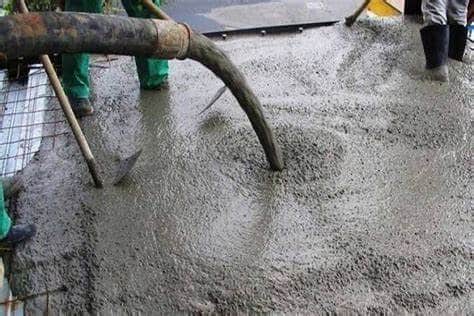What Are The Major Factors That Affect Concrete Strength In Poway Ca?

- The water-cement ratio is perhaps the most critical factor influencing concrete strength. This ratio determines the amount of water required to hydrate the cement particles fully. A higher water-cement ratio increases workability but decreases strength. Excess water leads to more significant voids in the concrete matrix, weakening its overall structure. Conversely, a lower water-cement ratio produces a denser and stronger concrete mixture.
- Aggregates, such as sand, gravel, or crushed stone, constitute a significant portion of concrete volume. The quality and characteristics of aggregates directly impact concrete strength. Well-graded aggregates with proper shape and size distribution provide better interlocking and reduce voids within the concrete mixture, thereby enhancing its strength. Contaminants or weak particles in aggregates can compromise the integrity of the concrete, leading to reduced strength and durability.
- The type and quality of cement used in concrete significantly influence its strength and performance. Different types of cement, such as Portland cement, blended cement, or specialty cements, offer varying properties and strengths. Additionally, the fineness, chemical composition, and curing conditions of cement affect the hydration process and ultimate strength of concrete. Using high-quality cement with appropriate characteristics is essential for achieving desired concrete strength.
- Proper mixing and curing are crucial stages in concrete construction that directly impact its strength development. Inadequate mixing can result in uneven distribution of ingredients, leading to weak spots within the concrete structure. Moreover, maintaining suitable curing conditions, such as temperature and moisture levels, is essential for promoting cement hydration and preventing premature drying, which can hinder strength development. Properly mixed and cured concrete exhibits higher strength and durability over time.
- Environmental conditions, including temperature, humidity, and exposure to chemicals or aggressive agents, can affect concrete strength both during the curing process and throughout its service life. Extreme temperatures can accelerate or retard the hydration process, altering the strength development of concrete. Exposure to harsh chemicals or aggressive environments can cause chemical reactions or deterioration, compromising the integrity of the concrete and reducing its strength over time.
FAQs
How Can I Improve The Strength Of Concrete?
To enhance concrete strength, ensure an optimal water-cement ratio, use high-quality aggregates and cement, follow proper mixing and curing practices, and consider factors such as temperature and environmental exposure during construction.
What Is The Significance Of Curing In Concrete Strength Development?
Curing plays a vital role in allowing concrete to achieve its full strength potential by maintaining adequate moisture levels and promoting continuous hydration of cement particles. Proper curing helps mitigate shrinkage, cracking, and improves overall durability.
Can Environmental Factors Impact Concrete Strength After Construction?
Yes, environmental factors such as temperature variations, chemical exposure, and moisture ingress can continue to affect concrete strength and durability throughout its service life, necessitating regular maintenance and protection measures.
Conclusion
Concrete strength is influenced by a multitude of factors ranging from the mix proportions to environmental conditions. By understanding and controlling these factors, constructors can ensure the production of high-quality concrete structures with the desired strength and durability, thus enhancing the safety and longevity of construction projects. Implementing best practices in material selection, mixing, curing, and environmental management is essential for optimizing concrete strength and performance. For more information, contact Concrete Contractor Poway Ca at (858) 683-6565.